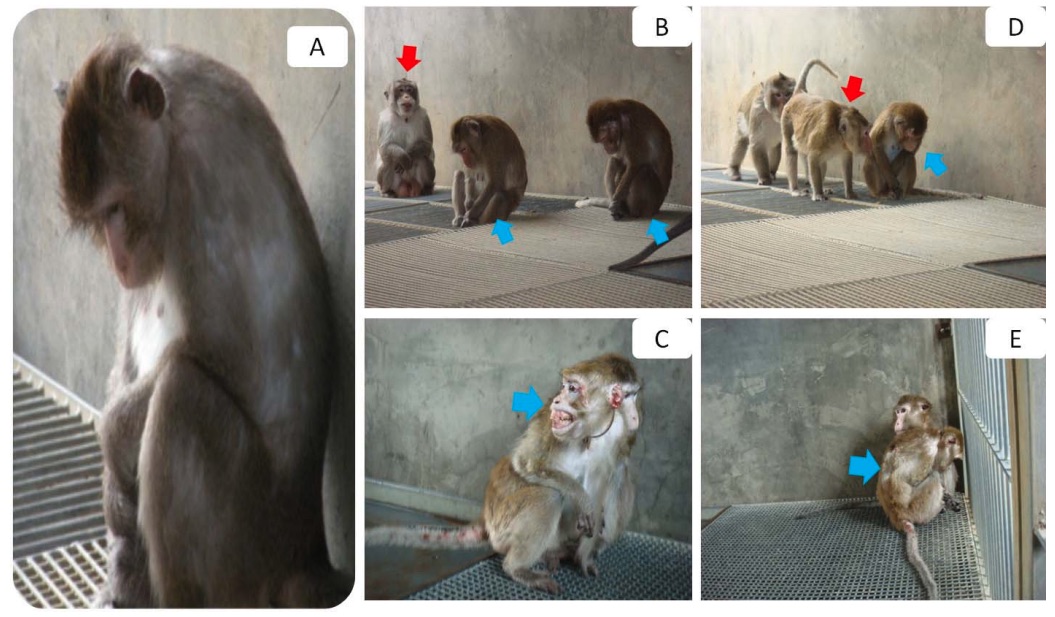Primate Depression & Anxiety Modeling & Pharmacodynamics Service
Creative Biolabs is an experienced CRO that focuses on preclinical projects. With the advanced experimental apparatus, fully-equipped facilities, a professional R&D team, and a standardized management system, we have provided preclinical non-GLP services for our global clients on our pharmacology and pharmacodynamics (PD/PK) platform and have been recognized as a trustworthy CRO partner. We are dedicated to providing high-quality services to promote your scientific research and facilitate the drug development process.
What are Depression and Anxiety?
Depression, also known as depressive disorder, is the main type of mood disorder with significant and lasting depression as its main clinical feature. Clinically, symptoms of emotional depression varying from mild to severe include gloom, grief, low self-esteem, depression, pessimism, suicide attempts or behaviors, stupor, etc. Anxiety, also called anxiety neurosis, is the most common type of neurosis. It can be divided into chronic anxiety (namely generalized anxiety) and acute anxiety (namely panic attack). The main manifestations of anxiety are nervousness and anxiety without a clear objective object, restlessness, and autonomic dysfunction, symptoms of which include palpitations, hand tremors, sweating, frequent urination, and exercise anxiety.
 Fig. 1 Characteristic behaviors observed in depressed macaques. (A) Slumped or collapsed posture. (B) Side-by-side comparison of abnormally postured depressed subjects (right, blue arrow) and a healthy control subject (left, red arrow). (C) Post-conflict bleeding visible on the face, ear, and tail of a depressed subject. (D) Diminished social interaction with other subjects. (E) Two depressed subjects embracing in the corner of the free enclosure.1
Fig. 1 Characteristic behaviors observed in depressed macaques. (A) Slumped or collapsed posture. (B) Side-by-side comparison of abnormally postured depressed subjects (right, blue arrow) and a healthy control subject (left, red arrow). (C) Post-conflict bleeding visible on the face, ear, and tail of a depressed subject. (D) Diminished social interaction with other subjects. (E) Two depressed subjects embracing in the corner of the free enclosure.1
Preclinical Tools for Depression and Anxiety Research
In recent years, the incidence of depression and anxiety has increased year by year, which has seriously compromised the physical and mental health of human beings. However, their pathogenesis is not yet clear and current clinical therapies have major limitations, such as low efficacy, slow onset, severe side effects, and high recurrence rate. Animal models that simulate the disease state of human depression and anxiety can contribute to solving the above problems. Thus, they have been widely used in the study of the pathogenesis of depression and anxiety and the development of novel therapeutic drugs. Animal models of depression and anxiety can be divided into the following categories according to different modeling methods: stress modeling, surgical modeling, drug-induced modeling, and genetic modeling. These models can explain the occurrence of depression and anxiety from different aspects, such as neurotransmitters and their receptors and transporters, neurotrophic factors, neuroendocrine system, inflammation hypothesis, etc., which play an important role in elucidating the pathogenesis and evaluating the efficacy of potential therapeutics.
Why We Need NHP Depression and Anxiety Models?
Although rodents have been used to study the neurobiology of depression, NHPs seem to be a better experimental animal species since their brains are more like humans. NHPs are very similar to humans, for example, they live in a complex social environment. Previous studies showed that certain symptoms can be directly observed in "depressed" NHPs, such as slowed psychomotor movements, loss of appetite, and sleep disturbances. Besides, other studies have demonstrated that rhesus monkeys are very suitable for simulating human anxiety because of the following reasons: their social and emotional behavior expressions are very close to humans; they have similar eutrophication and early cognitive development patterns to humans; they have the same type of stressors as humans. Therefore, NHP models of depression and anxiety are recognized as powerful preclinical tools by more and more researchers.
What Services Can We Provide?
Creative Biolabs has successfully established the depression model and anxiety model in NHPs. To learn more about the etiology, pathogenesis of depression and anxiety and the efficacy of your candidate drugs, we also provide the following related analysis services: cerebrospinal fluid sampling and measurement of monoaminergic neurotransmitters, behavioral sampling and analysis, sucrose preference test, RNA quantification, WB, FACS, etc.
If you are interested in the NHP models of depression and anxiety, please feel free to contact us for further discussions. Creative Biolabs is sophisticated in establishing the Neurological Disease Model and has accumulated lots of research experience and scientific data about these models. We are willing to share our model experience with you and assist you in your research project. We are your trustworthy CRO partner.
Reference
- Xu, Fan, et al. "Macaques exhibit a naturally-occurring depression similar to humans." Scientific Reports 5.1 (2015): 9220. Distributed under Open Access license CC BY 4.0, without modification.
For Research Use Only.
